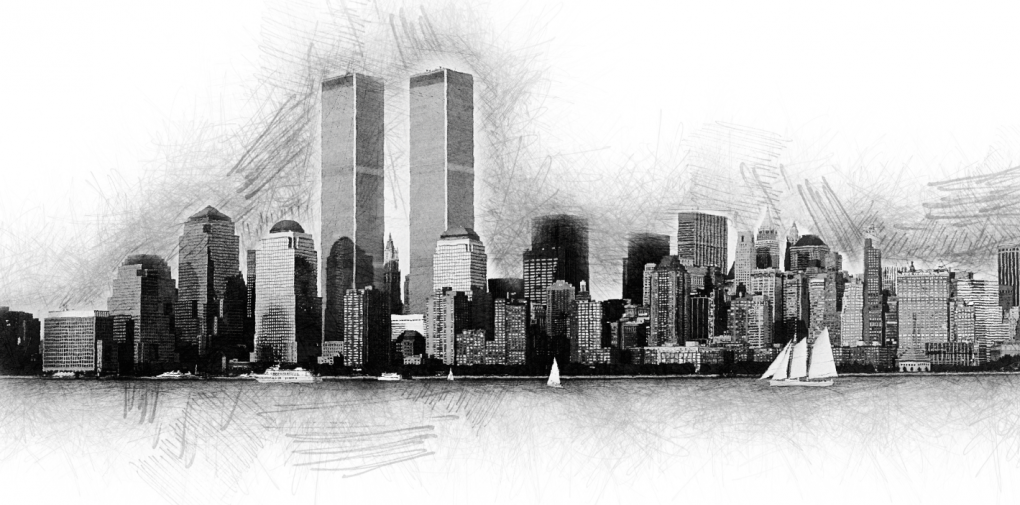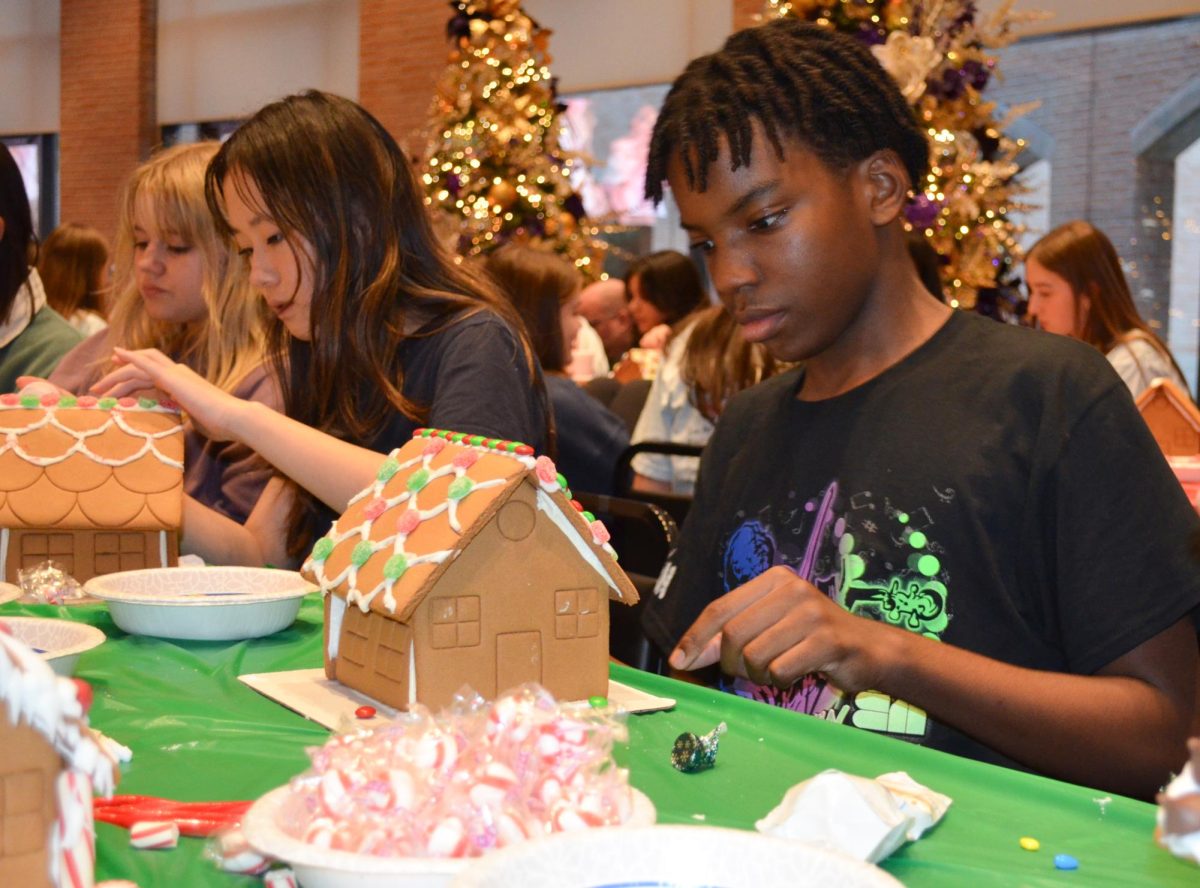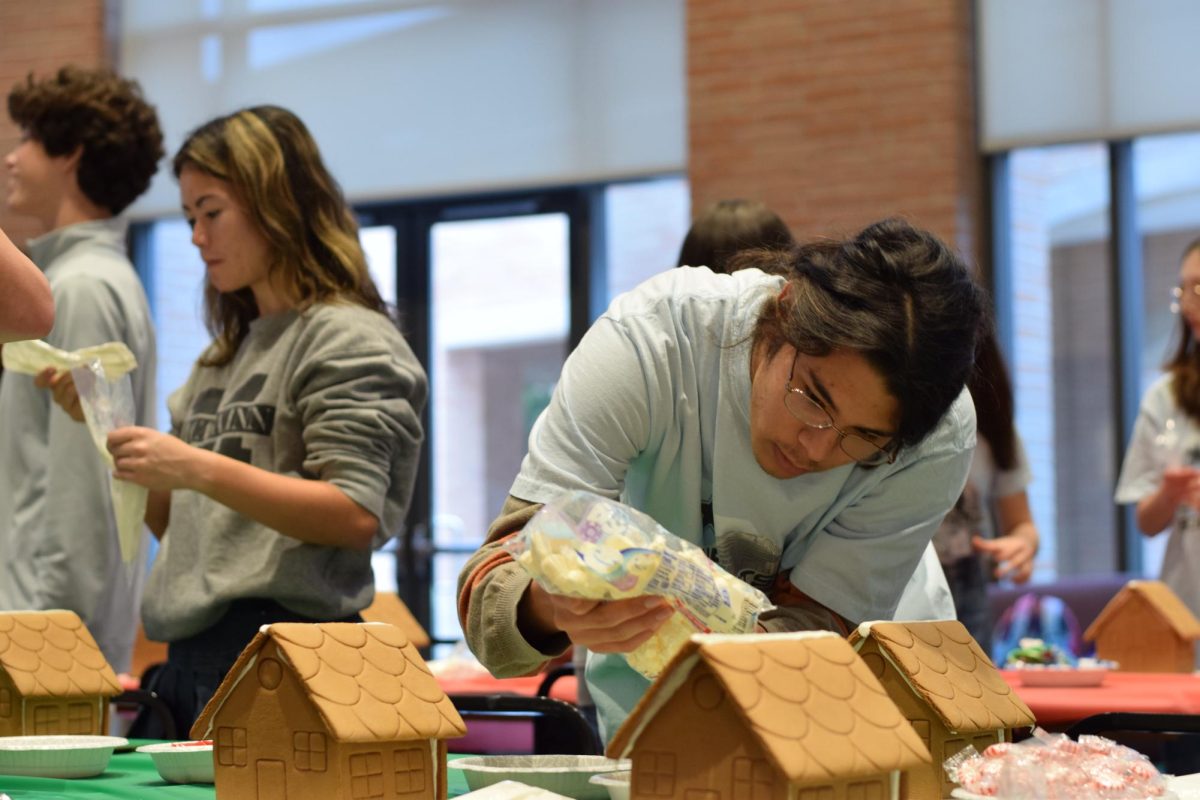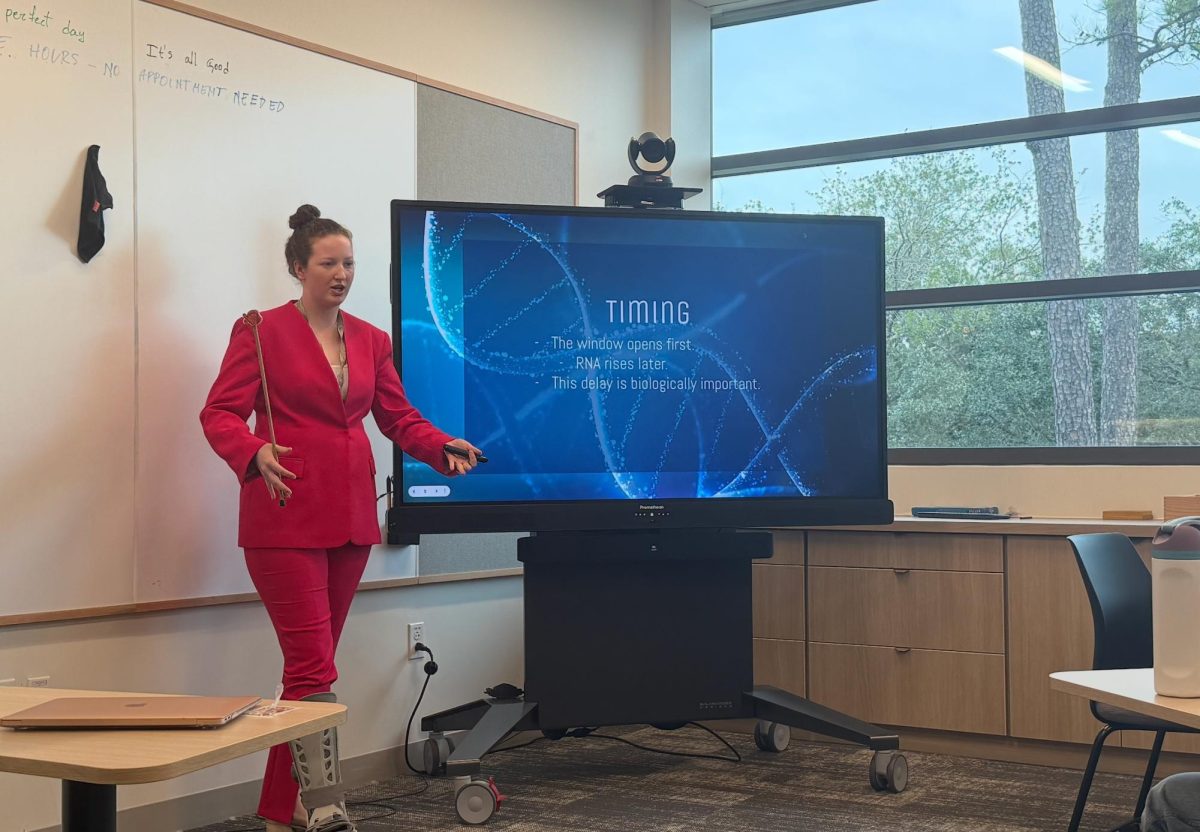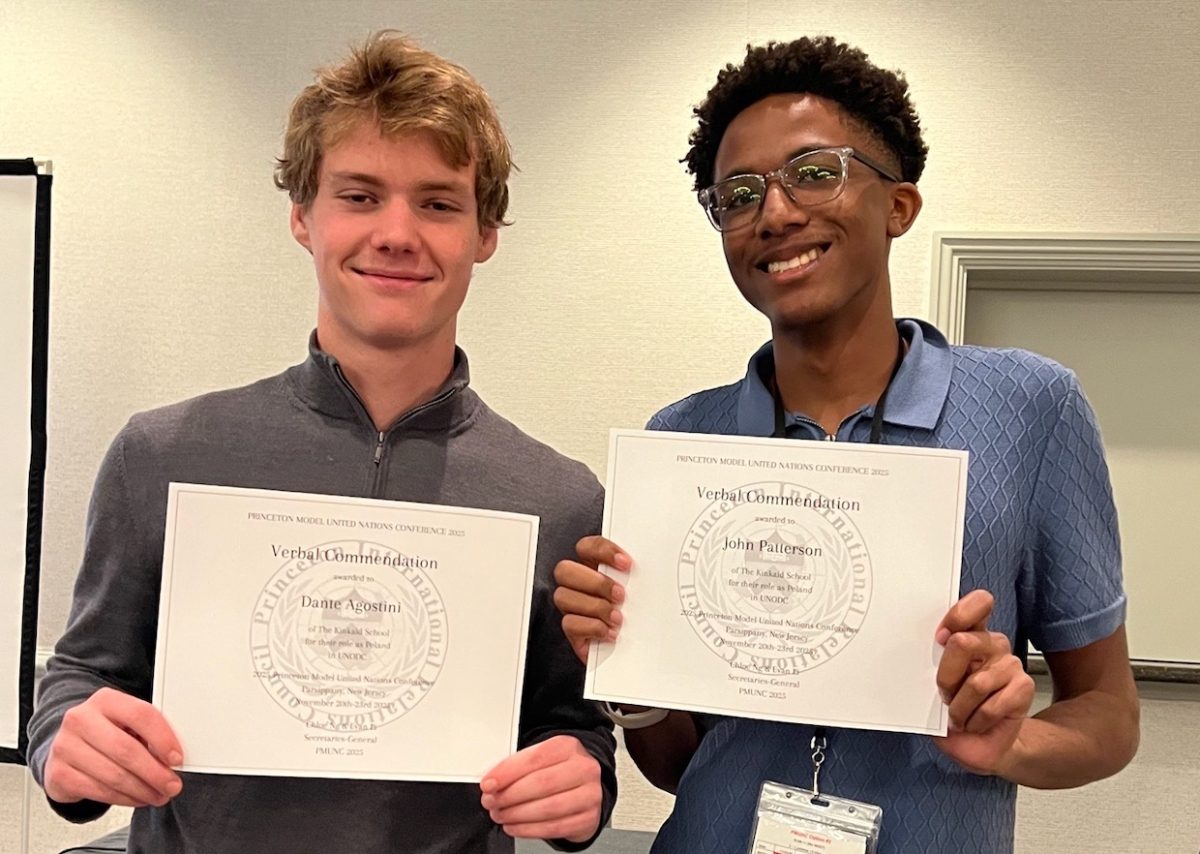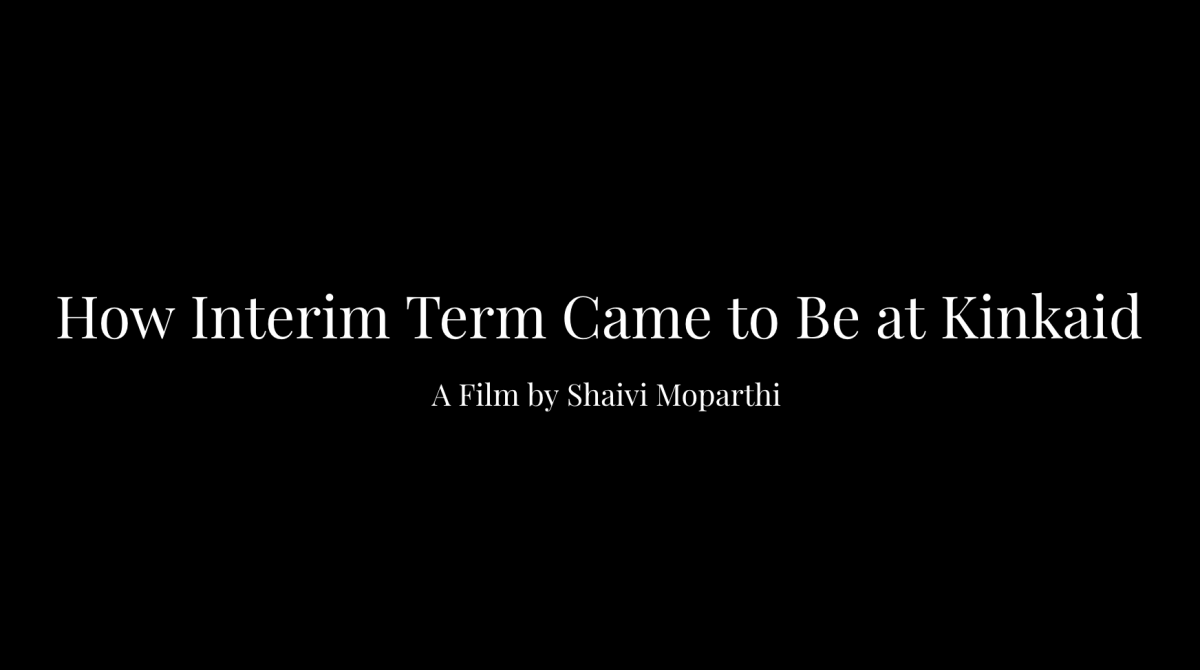[dropcap]I[/dropcap]t was a typical September day in New York City on Sept. 11, 2001. No clouds were present in the bright blue sky; the cool autumn air blew away the tail-end of the miserable summer heat; the hustle and bustle in the city that never sleeps kept on as it did every day. Then at 8:45 a.m., a loud thunder-like crash reverberated through the city, and a dark grey cloud obliterated the sky. Ashes and remnants of papers drifted down to carpet the streets.
American Airlines flight 11 had crashed into the North Tower of the World Trade Center in downtown Manhattan.
People thought it was just a mistake; they believed that the plane must have had a malfunction. Eighteen minutes later however, they realized that the crash was no accident when United Airlines flight 175 slammed into the South Tower. At 9:45 a.m., American Airlines flight 77, crashed into the Pentagon. The country was under attack.
Americans were shocked, terrified, and devastated, but the country felt a sense of unity and strength. When former President George W. Bush spoke about the tragedy that night, he said, “Terrorist attacks can shake the foundations of our biggest buildings, but they cannot touch the foundation of America. These acts shatter steel, but they cannot dent the steel of American resolve.”
Students don’t remember this day since most of the seniors were only two or three years old.
On Sept. 11, Philosophy teacher Dr. Ed Harris was working in his office in New Jersey. He was getting frustrated because the fax he was trying to send wouldn’t go through. He was trying to send some documents to some attorneys at the Marsh & McLennan office in the North Tower of the World Trade Center.
He figured out why that fax wasn’t sending when a coworker told him to watch the television—that’s when he saw the Twin Towers on fire. Unlike most people, he immediately knew that the crash was no accident because he remembered the 1993 World Trade Center bombing, a previous terrorist attack on the buildings.
The most frightening part to him was that he didn’t know where his wife, Mrs. Anne Taylor Harris, was at the time. She worked for Deloitte Accounting in the World Financial Center building next to the Twin Towers. She had a meeting scheduled for that morning, and he couldn’t get ahold of her because the cell phone lines were down.
Fortunately, she realized on the way to work that she had left some papers at home and had turned around to retrieve them. The first tower was hit while she was heading home.
Once he discovered that she was safe, he turned his attention towards his church. He was the bishop of his community church in East Brunswick, NJ. 26 members of his congregation worked around the towers, and all of them survived.
Dr. Harris felt the aftermath of the attacks long after that tragic day. “The hardest thing about it [all] was that every day, the New York Times did a profile of someone who had died, and I made a point of reading each one of the profiles out of the sense of loss. [I wanted to] get to know them a little bit, just feeling the need to spend some time thinking about all of the ones who were lost that day,” he said.
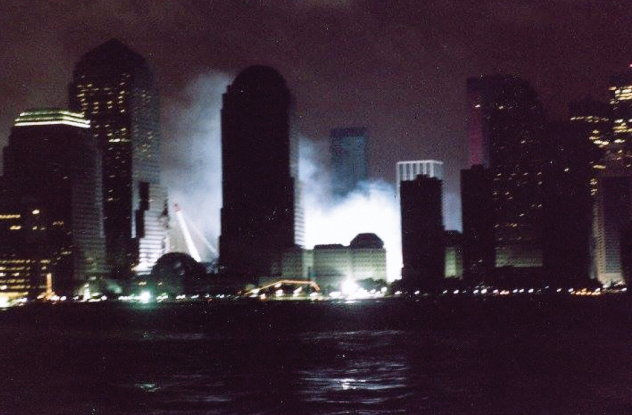
Another member of our community who directly experienced the aftermath of 9/11 is Mr. Josh Ramey, the Upper School Dean of Students. At the time, Mr. Ramey was on active duty in the U.S. Coast Guard. He was stationed in Yorktown, VA during the attack, but he was transported New York City to help. Like most Americans, Mr. Ramey was angry after the attacks.
“A lot of people didn’t get to do anything about it. We got to do something about it, so that helped channel some of the anger that we had because we got to be involved and help with it,” Mr. Ramey said.
He headed to the city on Sept. 12 with the Coast Guard to help protect the New York Harbor. They couldn’t let any recreational boats in or out, and they had to inspect every commercial boat entering the harbor. They also set up security zones around the targets of interest like the Statue of Liberty, the United Nations, the Indian River Nuclear Plant, and even Ground Zero, and he made sure that all boats stayed back a certain distance.
He remembered that the general mood was different in the city from before the tragedy. “It wasn’t like [9/11] was over on the 12th; it was still affecting people’s lives on a daily basis in a big way because we still hadn’t located many people.”
Mr. Ramey stayed in New York City until December, and when he left, there was still “smoke billowing from lower Manhattan.”
Mr. and Mrs. Sean and Mindy Rice, parents of Lauren Rice (11) and Mary Katherine Rice (9), lived in New York City during the attack. On Sept. 11, 2001, the family prepared to move to Houston the following day, but their plans changed.
They were in their apartment when they heard a loud boom. They didn’t realize that a plane had hit the North Tower until Mr. Rice’s sister called from New Orleans to see if they knew what had happened. “We hoped it was a small private plane crash,” Mr. Rice recalled, “but as soon as [we] saw the second one hit, [we] knew that was not the case.”
They remembered the day as being very chaotic. People were crying and screaming everywhere, and the wind carried tons of ashes to their Brooklyn Heights neighborhood.
“People were yelling at me to get the baby inside because they thought it was chemical warfare. And then people were walking over the bridge into Brooklyn, and they were covered in grey soot,” Mrs. Rice said.
The movers still moved them out of the apartment on Sept. 12, and they had to stay in a hotel for four days because the airports were closed. They took one of the first plane flights out of Newark, N.J. It took them “over four hours” to get through security because officers checked “every single piece of clothing” in their suitcases.
“You could sense that everyone was uncomfortable and checking everyone else out on the plane,” Mr. Rice said. “It was an awkward time when people were worried and mistrusting of one another.”
“People were yelling at me to get the baby inside because they thought it was chemical warfare.” – Mrs. Rice, recalling the events of September 11, 2001
9/11 also touches the students as we have experienced the aftermath of the tragedy for our whole lives.
Less than a month after the attack, Oct. 7, 2001, President Bush declared war against terrorism, and troops were sent to invade Afghanistan, where Al-Qaeda established its base. President Barack Obama announced a timetable for removing U.S. forces in Afghanistan, but some troops still remain there today.
Al-Qaeda, led by Osama bin Laden, successfully executed additional terrorist attacks in Madrid and London. Their power has since dissipated, and Bin Laden was found and executed in 2011.
Since then, the terrorist group, Islamic State of Iraq and Syria (ISIS) has risen to power and created the new terrorist threat around the world. Members of the group are responsible for the attacks in Paris, Belgium, and many more.
The United States as well as Russia, France, Iran, the United Kingdom, the Kurds, and other Arab nations are currently working together to defeat the terrorist group in Syria and Iraq. The fight against terrorism is still going strong, though the players have changed.
Most students don’t remember 9/11–some weren’t even born yet–but we will never forget what happened. The effects of the tragedy changed the world as we know it and altered the landscape of our futures.


